Yong-Deok Kim
Learning to Select Pre-Trained Deep Representations with Bayesian Evidence Framework
Apr 25, 2016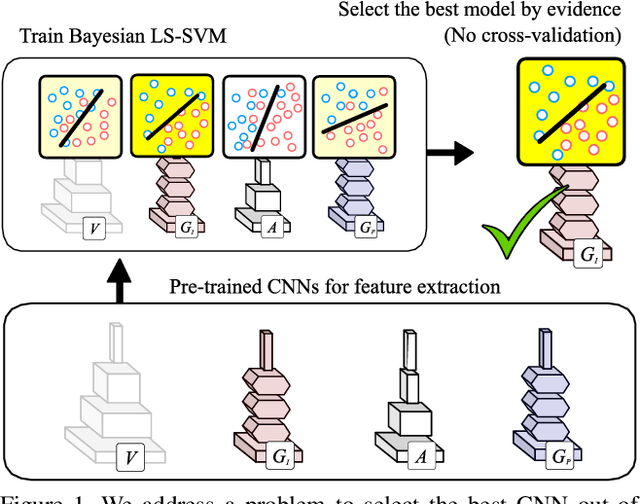
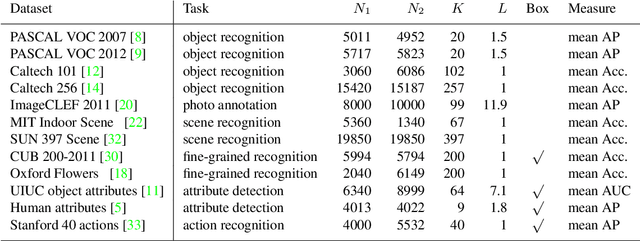
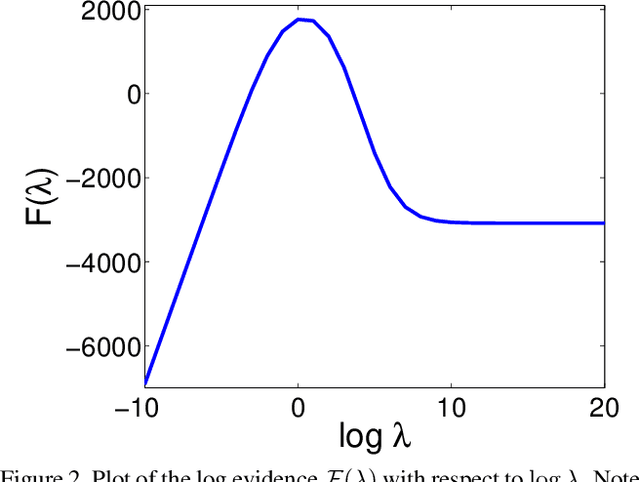
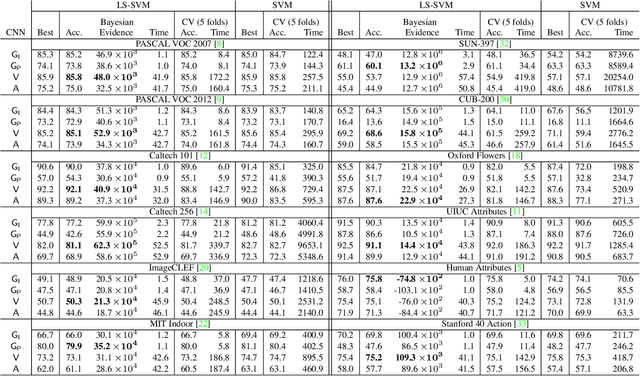
Abstract:We propose a Bayesian evidence framework to facilitate transfer learning from pre-trained deep convolutional neural networks (CNNs). Our framework is formulated on top of a least squares SVM (LS-SVM) classifier, which is simple and fast in both training and testing, and achieves competitive performance in practice. The regularization parameters in LS-SVM is estimated automatically without grid search and cross-validation by maximizing evidence, which is a useful measure to select the best performing CNN out of multiple candidates for transfer learning; the evidence is optimized efficiently by employing Aitken's delta-squared process, which accelerates convergence of fixed point update. The proposed Bayesian evidence framework also provides a good solution to identify the best ensemble of heterogeneous CNNs through a greedy algorithm. Our Bayesian evidence framework for transfer learning is tested on 12 visual recognition datasets and illustrates the state-of-the-art performance consistently in terms of prediction accuracy and modeling efficiency.
Compression of Deep Convolutional Neural Networks for Fast and Low Power Mobile Applications
Feb 24, 2016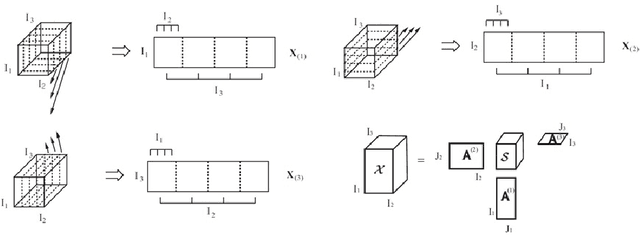
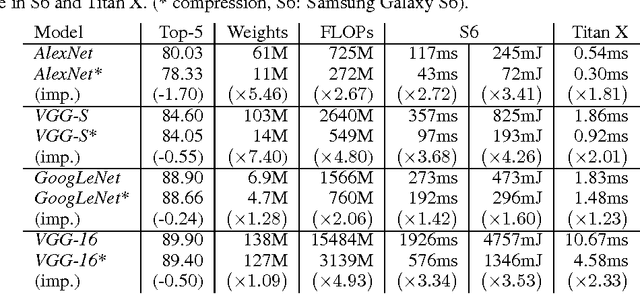

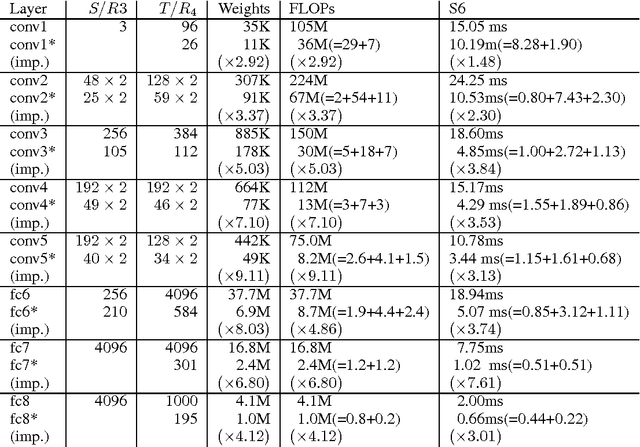
Abstract:Although the latest high-end smartphone has powerful CPU and GPU, running deeper convolutional neural networks (CNNs) for complex tasks such as ImageNet classification on mobile devices is challenging. To deploy deep CNNs on mobile devices, we present a simple and effective scheme to compress the entire CNN, which we call one-shot whole network compression. The proposed scheme consists of three steps: (1) rank selection with variational Bayesian matrix factorization, (2) Tucker decomposition on kernel tensor, and (3) fine-tuning to recover accumulated loss of accuracy, and each step can be easily implemented using publicly available tools. We demonstrate the effectiveness of the proposed scheme by testing the performance of various compressed CNNs (AlexNet, VGGS, GoogLeNet, and VGG-16) on the smartphone. Significant reductions in model size, runtime, and energy consumption are obtained, at the cost of small loss in accuracy. In addition, we address the important implementation level issue on 1?1 convolution, which is a key operation of inception module of GoogLeNet as well as CNNs compressed by our proposed scheme.
 Add to Chrome
Add to Chrome Add to Firefox
Add to Firefox Add to Edge
Add to Edge